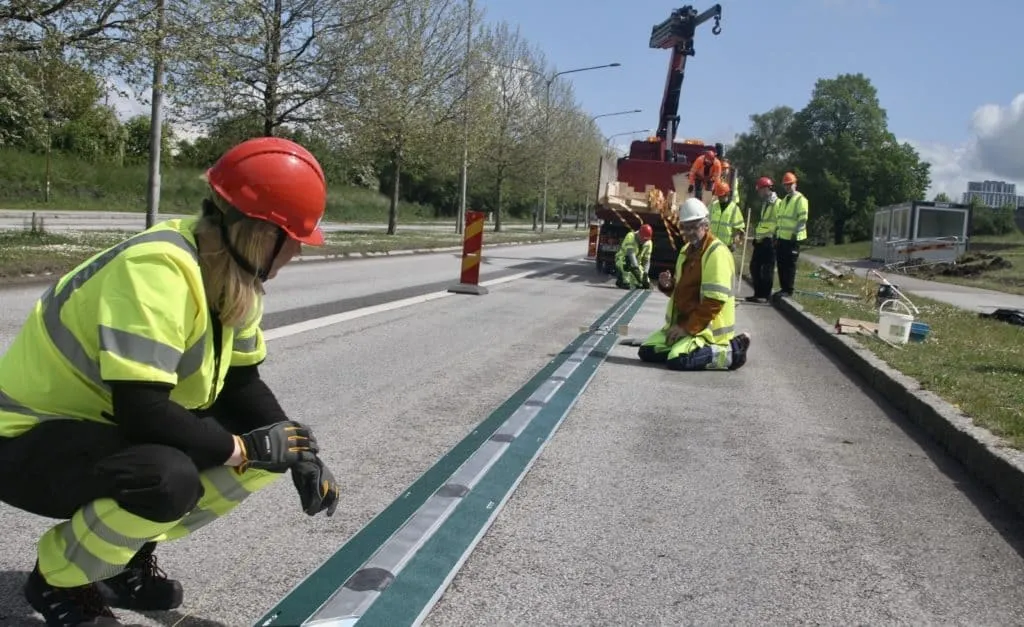Researchers at Sweden’s SP Fire Research are involved in a project to develop safer battery systems for electrified vehicles, together with Atlas Copco, Chalmers University of Technology and Elforsk, with financial support from the Swedish Energy Agency.
Lithium-ion batteries (Li-ion) offer great energy and power densities accompanied with long battery life time. In an abuse situation however, e.g. in case of mechanical deformation or overheating, the flammable electrolyte of the Li-ion battery might pos
October 16, 2015
Read time: 2 mins
Researchers at Sweden’s SP Fire Research are involved in a project to develop safer battery systems for electrified vehicles, together with Atlas Copco, Chalmers University of Technology and Elforsk, with financial support from the Swedish Energy Agency.
Lithium-ion batteries (Li-ion) offer great energy and power densities accompanied with long battery life time. In an abuse situation however, e.g. in case of mechanical deformation or overheating, the flammable electrolyte of the Li-ion battery might pose a risk.
The project includes various destructive tests on commercial Li-ion battery cells to study the cell response in terms of temperature, gas, fire and explosion in electrical abuse tests including overcharge and short circuit tests and exposure to fire.
SP believes that today there are no intrinsically safe Li-ion cells with usable properties. Experience from the consumer market shows that there is a small probability (ppm-level or less) for internal short circuiting in Li-ion cells, potentially resulting in a so called thermal runaway and a battery fire. In a large battery pack, with many cells, the probability of a thermal runaway will increase due to the use of more cells. This leads to an increased risk of a cell safety incident and it is important to minimise its consequences. For example, the cell-to-cell propagation of a thermal runaway in a single cell can be affected by battery pack design.
The tests showed that higher battery electrical charge level (state-of-charge) gives a higher heat release rate (HRR) while the total heat release (THR) is roughly the same for all charge levels. Gas emissions were also measured. The Li-ion cell contains fluorine that can form highly toxic compounds such as hydrogen fluoride (HF) that can be released.
Tests were also carried out using simulation tools to model the heat transfer in a pack of five cells with the aim of predicting the cell-to cell heat spread for a five-cell-pack. Using the Finite-Element software Comsol Multiphysics, the results corroborated those obtained from the experimental tests.
Lithium-ion batteries (Li-ion) offer great energy and power densities accompanied with long battery life time. In an abuse situation however, e.g. in case of mechanical deformation or overheating, the flammable electrolyte of the Li-ion battery might pose a risk.
The project includes various destructive tests on commercial Li-ion battery cells to study the cell response in terms of temperature, gas, fire and explosion in electrical abuse tests including overcharge and short circuit tests and exposure to fire.
SP believes that today there are no intrinsically safe Li-ion cells with usable properties. Experience from the consumer market shows that there is a small probability (ppm-level or less) for internal short circuiting in Li-ion cells, potentially resulting in a so called thermal runaway and a battery fire. In a large battery pack, with many cells, the probability of a thermal runaway will increase due to the use of more cells. This leads to an increased risk of a cell safety incident and it is important to minimise its consequences. For example, the cell-to-cell propagation of a thermal runaway in a single cell can be affected by battery pack design.
The tests showed that higher battery electrical charge level (state-of-charge) gives a higher heat release rate (HRR) while the total heat release (THR) is roughly the same for all charge levels. Gas emissions were also measured. The Li-ion cell contains fluorine that can form highly toxic compounds such as hydrogen fluoride (HF) that can be released.
Tests were also carried out using simulation tools to model the heat transfer in a pack of five cells with the aim of predicting the cell-to cell heat spread for a five-cell-pack. Using the Finite-Element software Comsol Multiphysics, the results corroborated those obtained from the experimental tests.







